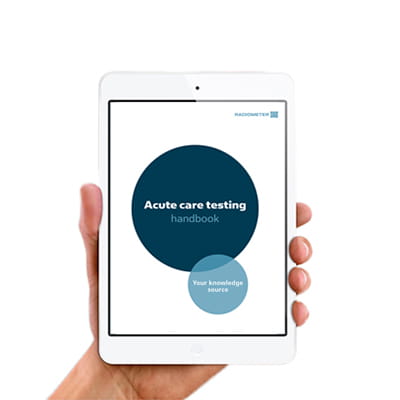Printed from acutecaretesting.org
October 2017
Reduced plasma potassium – a rare cause highlighted
Summarized from Gallacher S, Tsokolas G, Dimitropoulos I. Liquorice-induced apparent mineralocorticoid excess presenting in the emergency department. Clinical Medicine 2017; 17: 43-45.
In health plasma potassium concentration is maintained within the approximate reference range of 3.5-5.3 mmol/L in part by the action of the adrenal hormone aldosterone on renal tubule cells. Hypokalemia (reduced blood potassium), defined as plasma potassium <3.5 mmol/L, is one of the most common electrolyte disturbances that, if sufficiently severe, can cause muscle weakness/paralysis and cardiac arrhythmias.
In broad terms hypokalemia usually results from excessive loss of potassium in urine or via the gastrointestinal tract. Decreased potassium intake and translocation of potassium from extracellular compartment (plasma) to cells are less common mechanisms. A recently published case history highlights a rare cause of increased urine potassium loss with resulting hypokalemia.
The case concerns a 65-year-old lady who was referred to hospital emergency department by her GP after complaining of increasingly frequent episodes of paroxysmal palpitations, which can be a symptomatic effect of hypokalemia. Admission potassium measurement (2.4 mmol/L) confirmed severe hypokalemia. Her blood pressure was also markedly raised (198/127 mmHg).
The combination of severe hypokalemia and severe hypertension is suggestive of Conn’s syndrome (primary hyperaldosteronism). [Aldosterone is an adrenal hormone that via its action on kidney tubule cells regulates plasma potassium and sodium concentration. Excess aldosterone secretion, as in Conn’s syndrome, results in increased loss of potassium in urine, increased sodium reabsorption to blood and, thereby, increased ECF volume with consequent increased blood pressure.]
The hypokalemia was immediately treated with potassium supplement (80 mmol) delivered intravenously in saline drip, and the lady was admitted overnight for cardiac monitoring, with a provisional diagnosis of Conn’s syndrome.
An alternative diagnosis was suggested by subsequent questioning of the patient who admitted drinking licorice tea regularly three times a day. Attending doctors considered that the well-documented mineralocorticoid effect of licorice was a likely cause of the patient’s hypokalemia. She was advised to discontinue drinking licorice tea and was discharged 3 days later with no palpitations, near-normal potassium (3.1 mmol/L) and normal blood pressure.
At follow-up 13 days later the patient remained symptom-free with normal potassium (4.6 mmol/L) and normal blood pressure. Plasma aldosterone and renin at this time were both within normal limits, positively excluding a diagnosis of Conn’s syndrome and supporting the diagnosis of licorice-induced hypokalemia.
In discussion of this case history, the authors explain how an ingredient of licorice, glycyrrhizic acid, has apparent mineralocorticoid effect, and thereby how ingestion of licorice in excess can mimic hyperaldosteronism and cause hypokalemia and hypertension.
May contain information that is not supported by performance and intended use claims of Radiometer's products. See also Legal info.
Acute care testing handbook
Get the acute care testing handbook
Your practical guide to critical parameters in acute care testing.
Download nowScientific webinars
Check out the list of webinars
Radiometer and acutecaretesting.org present free educational webinars on topics surrounding acute care testing presented by international experts.
Go to webinars







